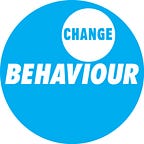Let’s refill like it’s 1993
Back in the summer of 1993, I hitched from Zimbabwe to Kenya with 3 university friends. Our bible was ‘Africa on a Shoestring’ or, as we called it, simply ‘Geoff’.
This 1,176 page tome contained words of wisdom on almost everything, one of my favourites being: ‘Avoiding contaminated water is easier said than done’. Although not a lover of fizzy drinks, I was therefore delighted to find that glass bottles of Coca-Cola and Fanta were available almost everywhere.
It took us a lot of time to get around, reliant as we were on the drivers of pick-ups and lorries to offer us a space in the back. Travelling over the border into Malawi perched on top of the load of an articulated lorry was one of my highlights.
On these journeys, the two food and drink options we could rely on finding anywhere were hard boiled eggs and the aforementioned soft drinks. The eggs of course came with their own packaging. With the drinks, though, there was a catch. In order to buy one, you had to hand over an empty bottle. There was no way that a street vendor was going to miss out on the getting his deposit back.
I can’t quite remember who we bribed to sell us our first four bottles, but after that the system worked perfectly. We each travelled with an empty in our rucksack, swapping it for a fresh bottle of always warm but safe to drink pop whenever we were thirsty. I genuinely don’t remember drinking water being a thing, although I suppose we must have found it from time to time. So other than offering my hearty thanks to the Coca-Cola company for keeping me Giardia free across five African countries (I picked that up in Myanmar a few years later and wouldn’t recommend), I find myself returning to this story as I think we can learn quite a lot from how things were done in Africa in the 90s.
Being something of a hoarder, I still have my African bottle. You never know when an ancient artefact like that may come in handy, after all. I’m not sure how many times that bottle was used before I took it out of circulation, but given the dents and scars it bears, I’m fairly convinced that it would be victorious in a sustainability lifecycle analysis against its modern rivals.
What was brilliant about the system embodied by this humble item was its sheer simplicity. Quite possibly aided by the monopoly of a certain drinks company, there was just one way of getting hold of a soft drink. It was, to use a bit of behavioural jargon, the default. You couldn’t even really label it as a social norm, more of an outright necessity.
Back in 2024, could it be time to take the plunge and shift wholesale to the ‘Africa ‘93’ model (no doubt with a more up to date container)? I think we might be surprised by how quickly we take to it.
